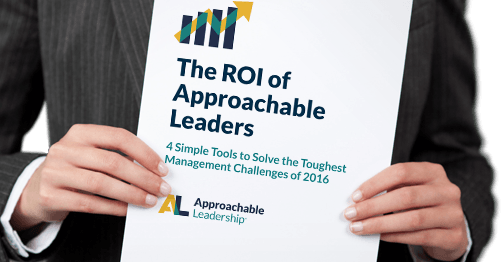Change Your Perspective and Change Everything: Fall in Love with Your Job Part 3 of 3
Can you really change everything if you change your perspective?
Why not? There is one thing we know for sure. The way you see your self, your work, your friends, your world, has a direct connection to the way you feel about your self. Your work. Your friends. Your world. There are many things in life that are outside our control. But our perspective is not one of them. Change your perspective and you just might change everything.
This is the last bit of advice David Allan gives us on how to fall in love with your job. We wrote about the first two steps – hacking your job and improving relationships with coworkers – here and here.
People want to feel like their work is meaningful. We say that a lot these days. Do you believe it yet? Maybe you’re one of the people still trying to come around to that perspective. (Ah, perspective). We understand. Twenty years ago, few people required meaning to stay at a job. That doesn’t mean they didn’t crave it. Or didn’t feel the effects when it was missing. It just means they wouldn’t quit their job over it. That’s not true anymore.
A recent study by Deloitte found that “two-thirds of Millennials express a desire to leave their organizations by 2020.” Why? Because it’s important to them to “find work that matches their values.” And because 90% of them “want to use their skills for good.” This is the new business paradigm. You fail to accept at your peril. Millennials will account for 75% of the workforce by 2025. It’s time to change your perspective if you want your business to thrive.
Let’s get real though.
It’s not easy to find meaning in every job.
But those jobs still need done.
Allan pointed to research on a group of hospital cleaning staff. Most would look at duties like changing bed pans and mopping floors and assume people who fill those roles don’t get much satisfaction – much less meaning. They’d be right. Some of the people who did those jobs actually felt that way. But there were a few who felt otherwise.
These “others” viewed their tasks as critical roles in healing patients. From minimizing chances of infection. To keeping an eye out for signs of health issues in a patients stool. To being a random smile to a patient at his worst. Their job was important.
“By shifting the paradigm around their job and adding meaning and purpose, the hospital staff made the tougher parts of their job tolerable, even important, and changed their behavior to support that purpose.”
What can leaders do?
- Change your perspective about your role. Rather than feeling like a mediator, a middleman, or an enforcer, consider yourself the foundation of your team’s support system. Not only do you help the business reach its goals to accomplish a bigger mission. You help your coworkers make it through their days without feeling unappreciated. Or devalued. Or (as best you can) bear the brunt of frustrations outside their control.
- Emphasize the importance of each role on your team. You literally can not do this enough. Most of us can go through a whole day without praising one team member’s work without even realizing it. You want your people to feel like their work is meaningful. We’ve already covered the “why” behind that. So tell them. Tell them often. And walk them through the big picture of how that one “little” thing they do is vital to the success of the company. And its mission as a whole.
- Encourage your team to change their perspective. This could be as simple as letting people recreate their job titles. The words we associate with our work have a direct impact on how we feel about ourselves. Think about it. How often are you asked what you do? One member of the hospital cleaning staff refused to call herself a “cleaning lady.” Instead, she dubbed herself an “Ambassador.” With that title came a responsibility to represent the hospital well. And to serve the patients in it well. What a mindset.
Do you think that changing perspectives can really makes that much of a difference? What has been your experience? Thanks for tuning into our How to Fall in Love with Your Job series. Good luck out there.










